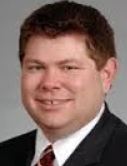 File this under things to keep an eye on for the rest of this school year: Over the next month, providers can start registering to offer classes for Florida’s new course access program.
File this under things to keep an eye on for the rest of this school year: Over the next month, providers can start registering to offer classes for Florida’s new course access program.
The program was codified by the state Board of Education at its November meeting. When it was first conceived, as part of 2013’s digital learning legislation, a lot of the initial hype centered on the fact that the law opens the door to high school students taking Massive Open Online Courses, or MOOCs, for credit in a select few courses covered by statewide end-of-course exams.
But its real significance goes beyond that.
Some education advocates see programs like the Florida Approved Courses and Tests Initiative as a new way to unleash entrepreneurial teachers and give students another way to customize their education that goes beyond simply choosing where they go to school. Maybe they’re in one of Florida’s 11 school districts without a physics course available. Maybe they just don’t click with their assigned teacher. They might have some digital courses already available to them, but if things go as planned, those options should expand once the initiative debuts during the 2015-16 school year.
The same legislation that created FACTs also led to the creation of the course catalog and allowed students to take online courses across district lines. Taken together, these policies are enabling Florida’s foray into course access — a term for programs that use technology to let students customize their education. It’s a hot topic in education policy circles now, and was the subject of a panel discussion at last week’s National Summit on Education Reform.
John Bailey, the vice president of policy at the Foundation for Excellence in Education, said the basic idea is that even students who attend a traditional campus can customize the courses they’re taking by supplementing them with courses outside their geographic area.

A similar program in Louisiana has given providers outside the traditional school system — from colleges offering dual enrollment courses to trade groups like Associated Builders and Contractors offering career and technical education — a new avenue to reach public school students.
In coming months it will be clearer who plans to provide courses under Florida’s program, which is set to debut next school year. Registration for new providers is set to open Dec. 15, and full applications will be available in January.
One of the panelists at last week’s conference, Michael Horn of the Clayton Christensen Institute, said there are good reasons why school districts should embrace course access programs. He recently outlined five of them.
One potential upside: They give districts a new way to relieve pressure to narrow their course offerings. Many public schools have courses — like Latin or astronomy — that lie off the beaten path to a diploma. Yet the teachers might have a zest for the subject that draws small but enthusiastic groups of students.
Jamey Fitzpatrick, president of Michigan Virtual University, said in the past, school districts under financial pressure might have had no choice but to stop offering niche courses that served fewer than 10 students. But in his state, like in Florida, money can follow students into online courses.
“Now I can think about taking that rock star teacher, converting that course to an online course, putting it in a statewide catalog and advertising it, and maybe I can get 20 kids from around the state to enroll in that course, and it becomes sustainable,” he said.
Not every course, or every teaching style, can translate easily to a digital environment. A Florida Department of Education report recommended that districts look for ways to offer in-person help to students taking FACTs courses.
Bailey, who is one of the authors of a recent report on courses access policies, said if districts set up the infrastructure to support course access programs, they could give entrepreneurial educators a new platform to reach students – and create homegrown answers to Kahn Academy.
“How many districts have a Sal Khan?” he asked.



Travis:
What about valid concerns regarding “lack of rigor” with regard to MOOCS and online courses and past evidence of cheating?
Hi Tom,
I think rigor is why the DOE is vetting the courses and why MOOCs will only be allowed for a subset of courses assessed by statewide end of course exams. Part of the idea is that if you have a high-quality, proctored EOC then 1) cheaters will suffer (assuming they aren’t caught beforehand by anti-plagiarism software and the like) and 2) a lack of rigor will be exposed. Also the guidelines for the FACTs initiative say the providers need to demonstrate an academic track record to pass muster with DOE. What exactly that will entail for each provider is something we’ll learn more about in the coming months as applications get processed.